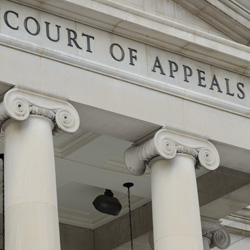California DMV Hearings and Appeals: Procedure and Process

In this article, Los Angeles DUI Defense Lawyer discusses DMV Hearing Appeal. Click on the links below to go directly to your topic of interest.
- DMV HEARINGS
- APS DMV HEARINGS
- HOW TO WIN A DMV HEARING
- HOW CAN EXPERT TESTIMONY HELP DURING AN APS HEARING
- DMV PROCEDURE AFTER DUI ARREST
- NEGLIGENT OPERATOR DMV HEARING
- APS DUI DMV HEARING APPEAL
- ADMINISTRATIVE REVIEW OF DMV DECISION
- APPEAL OF DMV RULING TO THE SUPERIOR COURT
- TIME LIMIT TO FILE WITH THE SUPERIOR COURT
- THE REASONS TO FILE A WRIT
- PROCEDURE
DMV HEARINGS
The DMV is directly responsible for issuing Driver’s licenses to California Residents. Not only does the DMV issue driver’s licenses, but it also keeps driving records which include accidents, failure to appear in court, point counts based on convictions and accidents, endorsements, and many other driving-related records. The DMV shares its driving record information with other agencies and many other States through a Compact. Also, Canada now receives DMV information from US drivers, which, through Compact, means California drivers. If you are arrested for a DUI in Los Angeles, the DMV will try to suspend your driving privileges. In fact, legally, under CVC 13353.2, a driver’s license is immediately suspended by the police officer with a temporary 30-day license issued on the spot. If you are arrested, you have to request a DMV hearing within 10 days of arrest to prevent a suspension.
APS DMV HEARINGS
Most DUI arrests will require an appearance in the Superior Court and a DMV hearing in a Drivers Safety DMV office. Thus, a DUI arrest will trigger two legal processes at the same time. One is administrative with the DMV and another criminal with the court. The administrative DMV hearing process starts with a police officer confiscating a California Driver’s License and serving a driver with a notice of suspension, which is the same form that also gives a temporary driver’s license to a driver after a DUI arrest.
This temporary driver’s license is issued by the arresting police officer on a standard multi-page DMV form, DS-367 which will give the driver the information on how to request a hearing. We often recommend requesting a hearing for most Los Angeles DUI arrests because the suspension or revocation of the driver’s license can be automatic without the hearing request. There are however instances where the hearing should not be requested because there is a substantial risk in some cases that the DMV will look at the record of the arrested driver and schedule a much more severe driver’s license consequences.
If the hearing is not requested within 10 days of the arrest, the driver’s license will be suspended or revoked depending on the type of test/arrest and the driving prior record of the driver. Drunk Driving Attorneys, Los Angles specialize in defending drivers in court and at the APS DMV hearings. We can provide quality representation at affordable prices because our overhead is low and we pass the savings to our clients. If you are arrested for a DUI in Los Angeles call our office to talk to a DUI attorney in Los Angeles now.
The DMV action is considered administrative in nature and does not require an appearance at the hearing by the driver. Los Angeles DUI Attorney can handle DMV hearings without you having to go or call the DMV. The DMV procedure permits testimony by telephone; so we can have an expert testify at your DMV hearing by telephone. Expert testimony is often crucial because it will shift the burden of proof to the DMV, who then must call their own expert to rebut the Los Angeles DUI Attorney’s argument that you are not guilty of DUI in Los Angeles. It is not uncommon for the DMV to not call their expert, which must result in winning your DMV case and keeping your driver’s license. There are exceptions to this rule, such as the case of Coffey v. Shiomoto (60 Cal 4th 1198) which permits the trier of facts to use circumstantial evidence of intoxication in addition to the blood alcohol level to determine that a person is above .08% BAC. But, usually, expert testimony is needed to conclude by the preponderance of the evidence that you were over the legal limit at the time of driving.
The police officer, after he confiscates the driver’s license and issues the DS 367, mailes a copy of the DS to the DMV. Once the DMV receives the order of suspension from the officer, the DMV will generate a suspension/revocation of driving privilege letter and mail it to the address listed with the DMV. If the request for a hearing is received in time by the DMV, you can safely ignore the DMV letter of suspension or call the DMV to confirm that the suspension will not take effect until the hearing.
HOW TO WIN A DMV HEARING

A very common way to undermine a DMV case is to attack the admissibility of a breath result based on failure to comply with the foundational requirement (People v. Adams 59 Cal App 3d 559). In Adams’s case, Adams lost the appeal, and his driver’s license was suspended or revoked after the Court of Appeals upheld the lower court decision. The Court of Appeals stated that foundational requirements to admit the results of a breath test:
-
The particular apparatus utilized was in proper working order,
-
The test used was properly administered, and
-
The operator was competent and qualified.
If there is no compliance with Adams foundational requirements (such as – the observational period is less than 15 minutes) or the operator is not qualified to operate this particular machine, the results of the breath test should not be admissible at the APS hearing or trial. But also because of the People v. Adams case, the breath test results can be used at trial even when the breath test machine was not properly calibrated. For example, when the machine is not in compliance with Title 17, which requires, calibration of that breath testing instrument weekly or after 100 subjects. The court ruled that “such strict compliance with calibration requirements is not fatal to the DMV prosecution” because statutory compliance or noncompliance merely goes to the weight of the evidence (People v. Rawling 42 Cal App 3d 952).
For example, if a Data Master Breath machine was used and the officer is not certified to operate such a machine, the results of the breath test are admissible but should be given less weight. When such a situation comes up at your hearing or trial, you must try to discredit the results of the test by showing that noncompliance with Title 17 affects validity.
Another example is a test by a certified officer on a machine that was not maintained properly.
Such results, also, would also be admissible at trial or hearing but the trial of fact would be permitted to give less weight to such evidence.
HOW CAN EXPERT TESTIMONY HELP DURING AN APS HEARING
In Brenner v. DMV, the court held that once the Respondent presents expert testimony undermining the DMV finding, the burden switches to the DMV to disprove it and unless they present expert testimony or otherwise overcome the burden, the DMV has to set aside the suspension. DUI lawyers in Los Angeles will help you set up your defense so that the DMV is required to set aside the suspension.
In Brenner v. DMV, CHP arrested Derek Brenner and he submitted to the PAS test with results of .080, .053, and .085% BAC. After being arrested, Brenner submitted to a breath test with two identical results of .08%. The CHP Officer who arrested Brenner tested the Breathalyzer before and between the two tests with an air blank that registered 0.00 percent.
At the APS hearing, Brenner offered the testimony of an expert introducing calibration logs showing that the breathalyzer was improperly calibrated and read .002 higher, implying and opining that the .08% reading was actually .078%. The DMV put little weight on expert testimony because the truncated results of the reading (the third digit is omitted), meant that chances are, the reading was higher than .08%. For example, a .089 reading with a .002 calibration error would still only get it to .087%, which, truncated would read a .08% reading. The court of appeals focused on the burden of producing evidence. In Brenner, once the expert testified that the results are below .08%, the burden to produce evidence switched to the DMV to provide testimony of its own expert that the BAC was above .08%.
DMV PROCEDURE AFTER DUI ARREST
Prior to the hearing, the DMV will mail a copy of the police report and the DS 367 form to your attorney. A DUI DMV hearing can be won on evidentiary objections when the arresting officer does not fill out the DS 367 forms correctly.
EXAMPLE: In a recent hearing, the police officer did not fill out page 2 of the DS 367, the “reasonable suspicion/probable cause statement. The DMV has no choice but to set aside the suspension even when reasonable suspicion and probable cause are evident from the police report because DS 367 is a sworn document and the police report is not.
EXAMPLE: The police officer forgets to sign the police report. The DMV must set aside such a suspension unless the officer is subpoenaed to the hearing to confirm that he is the person who conducted the investigation.
If the hearing is requested, the DMV will hold a hearing, called Admin Per Se hearing (APS) where it will try to establish the driver’s blood alcohol level. Los Angeles DUI Attorney at the APS hearing will fight the DMV by showing that:
- The officer had no good (legal) reason to contact you or that,
- You were not legally arrested, or that,
- At the time of driving, you were not above the legal limit.
Please call Los Angles DUI Attorney for a free consultation. We do hope we get the chance to defend you at your APS DMV hearing in Los Angeles. Remember that a DMV hearing is not just an interview, it is a contested hearing with possible witnesses in which the DMV is attempting to take your driver’s license away. Going there unprepared or without a DUI attorney will reduce your chances of winning. Remember that if you have a defense in your case, it is your responsibility to bring it forward. Once the hearing is over, your chance in defending your case is over. If you don’t raise your arguments at a DUI DMV hearing (APS hearing), you will forfeit your argument and even if you have a winning case – it is simply too late for that. Because the California legislature created two separate procedures for a DMV DUI hearing and a Court DUI prosecution, a person can lose his license even when a DUI case is dismissed in court.
NEGLIGENT OPERATOR DMV HEARING
In addition to APS and Refusal hearings, the DMV might hold a “negligent operator” hearing when you get too many points on your driving record. A California, many traffic violations carry points. Most non-moving violations, such as broken taillight and other equipment violations do not carry points. In contrast, most moving violations carry at least one point. An example of a moving violation would be, speeding or going through a red light. Commercial drivers suffer a point and a half for every non-commercial violation. Also, more serious traffic violations can carry up to 2 points. For example, driving on a suspended license or a drunk driving conviction carries two points. When a driver gets more than 4 points in 1 year, 6 points in 2 years, and 8 points in 3 years, he is subject to a driver’s license suspension based on the DMV determining that the driver is a “negligent operator”. Such a driver is entitled to a hearing during which he or she is entitled to be represented by an attorney. We are highly effective Los Angeles DUI and traffic attorneys who can fight negligent operator hearings on your behalf with the DMV. It is very possible to win these hearings but you have to request it first or let us request the hearing timely on your behalf. Los Angeles traffic attorneys can help you win negligent operator determination by arguing experience of the driver weight favorable against negligent operator determination. The DMV hearing officers will consider such factors as the amount of driving – allowing drivers who drive more than the average person to maintain their license despite having more than 4 points in 1 year, 6 points in 2 years, or 8 points in 3 years.
The negligent operator hearings are scheduled in one of the DMV Driver Safety Offices closest to the home address of the driver accused of being a “negligent operator”. In Los Angles county the driver safety offices that handle such hearings are in Van Nuys, El Segundo, the City of Commerce, or Covina.
Los Angeles traffic attorneys are familiar with most hearing officers and will help navigate your negligent operator case to the most favorable venue, attempting to get the most sympathetic hearing officer. If you or your loved one is faced with the prospect of losing his driver’s license because of the point counts, please call our office to schedule a free consultation. We provide aggressive quality representation at an affordable price.
APS DUI DMV HEARING APPEAL
A DMV hearing appeal is necessary if you had a DMV hearing and the DMV suspended your driver’s license after the hearing based on finding that your blood alcohol level was higher than .08% alcohol by volume. The DMV hearing appeal can be filed either administratively or directly with the Superior Court of your county. The appeals are not mutually exclusive, and you can file both, however, statistically, there is a higher chance of winning at the Superior Court than administratively at the DMV. The time for appeal is different for DMV appeal and for the Superior court petition so that the right to appeal directly with the DMV (titled “administrative review”) expires after 15 days. In contrast, the right to appeal in court expires after 30 days (plus additional 4 days for delayed service). If administrative review is filed first, the time to file an appeal with the Superior Court is extended to 90 days from the day of the adverse administrative review decision and additional 4 days for delayed service. Part of the Los Angeles DUI attorney practice is to help his clients with DMV hearing appeals. If you were arrested for a DUI in Los Angeles, call our office. It is far better to have a successful DMV hearing than to appeal a bad decision from the DMV.
ADMINISTRATIVE REVIEW OF DMV DECISION
On the first level of the DMV hearing appeal, the administrative review can be a simple letter explaining why the hearing officer’s decision was wrong. The DMV appeal must explain in detail the errors the DMV hearing officer made. The DMV hearing appeal at the administrative level should be filed with the local driver safety office, which will forward your entire DMV file to the DMV headquarters in Sacramento. The DMV headquarters will review the hearing officer’s decision and issue its own decision affirming or setting aside the suspension/revocation. Sometimes, the DMV headquarters will order another hearing where witnesses can be called and testify about the facts of the case.
APPEAL OF DMV RULING TO THE SUPERIOR COURT
This DMV hearing appeal is filed in the court and is considered a “writ of an administrative decision”. The writ has to be filed within 30 days of the hearing officer’s adverse decision or within 90 days of the administrative review decision. The writ procedure commenced by filing a petition and paying a filing fee in the Superior Court (fee waivers are available for low-income petitioners). A writ needs to be accompanied by a few local forms. For example, in Los Angeles County a writ petition has to be accompanied by a civil cover sheet and an addendum. The proper place to file the court writ petition can be determined based on local court rules. In Los Angeles County all writs can be filed in the “Central District” located at 111 N. Hill Street in Down Town, Los Angeles. Los Angeles DUI attorney can help you file and litigate a writ in the Superior Court and the administrative review with the DMV.
Once the writ is filed, the Superior Court will schedule a court date where the DMV will assign a Deputy Attorney General (DAG) to represent its interests. At this initial court date, the court will select dates for trial and dates for filing papers. There are three papers that need to be filed in a writ case: the opening brief; an opposition, and the response to the opposition. The opening brief is filed by you; the opposition is filed by DMV and then you have a chance to file a response to the opposition. DUI lawyer Los Angeles will help you fight your writ case and knows how to argue with the judges to get your driver’s license back. Prior to trial, you have to pay for an “administrative record” which is a recorded copy of everything that was said during the hearing transcribed by the DMV reporter. The administrative record has to be filed in a special format, requiring bate stamps and special wire binding.
At the writ hearing, the court is required to view the evidence “de novo”, which means that the judge will substitute his or her judgment for the judgment of the DMV hearing officer.
TIME LIMIT TO FILE WITH THE SUPERIOR COURT
That review is called a Writ of Mandate and must be made within 30 days of the DMV order of suspension or within 90 days if the driver requested an administrative review of the DMV order. The filing deadline is usually extended to 4 days (making it 34 and 94 days) because of service by mail.
THE REASONS TO FILE A WRIT
California Code of Civil Procedure Section 1094.5 explains the procedure and reasons to file a writ. Specifically, CCP 1094.5(b) explains that the
The inquiry in such a case shall extend to the questions whether the respondent has proceeded without, or in excess of jurisdiction; whether there was a fair trial; and whether there was any prejudicial abuse of discretion.
It explains the abuse of discretion to mean
Abuse of discretion is established if the respondent has not proceeded in the manner required by law, the order or decision is not supported by the findings, or the findings are not supported by the evidence.
CCP 1094.5(e) permits the admission of new evidence in some circumstances.
…Where the court finds that there is relevant evidence that, in the exercise of reasonable diligence, could not have been produced or that was improperly excluded at the hearing before respondent, it may enter judgment…
However, when the petition to review in the Superior Court is filed without requesting a review with the DMV, CCP 1094.5 can be superseded by CVC 13559 which specifically forbids any new evidence, “...the court shall not consider other evidence“. Additionally, CVC 13559 lists different grounds for reversal of the DMV ruling, namely, “exceeding constitutional or statutory authority, made an erroneous interpretation of the law, acts in an arbitrary and capricious manner, or determination which is not supported by evidence in the record.
So, an administrative review with the DMV not only buys additional time to file a writ of mandamus review but also provides additional and different grounds for review. Most importantly, the review with the DMV of an APS decision permits the limited introduction of new evidence.
PROCEDURE
The writ procedure is fairly complicated and you are well advised to hire an attorney. Los Angeles DUI Attorneys are experts in filing both administrative reviews with the DMV and in filing a writ of mandamus petitions with the Superior Court.
The procedure allows for an ex-parte application for a stay of a suspension to permit the driver to drive while the hearing on the writ is pending. The review with the DMV does not allow for a stay of the suspension, so the only way a suspension can be stayed is by filing a writ with the Superior Court.
The writ filing must include the entire record of the proceeding including a transcript of the DMV hearing and all evidence that the court needs to consider.
Los Angeles DUI attorney has great experience litigating DMV hearing appeals after the DMV suspensions at all levels including DMV hearing appeals at the administrative level and in the Superior Court. DUI Lawyer Los Angeles can help you fight your DUI case and all DMV cases that are based on DUI arrests in Los Angeles.
Call our office any time of the day for a free consultation.
We provide a quality representation at an affordable price.

(818) 921 7744 Call anytime to talk directly to Los Angeles DUI Attorney.
YOU MAY ALSO BE INTERESTED IN:



 (11 rating, 3 votes)
(11 rating, 3 votes)